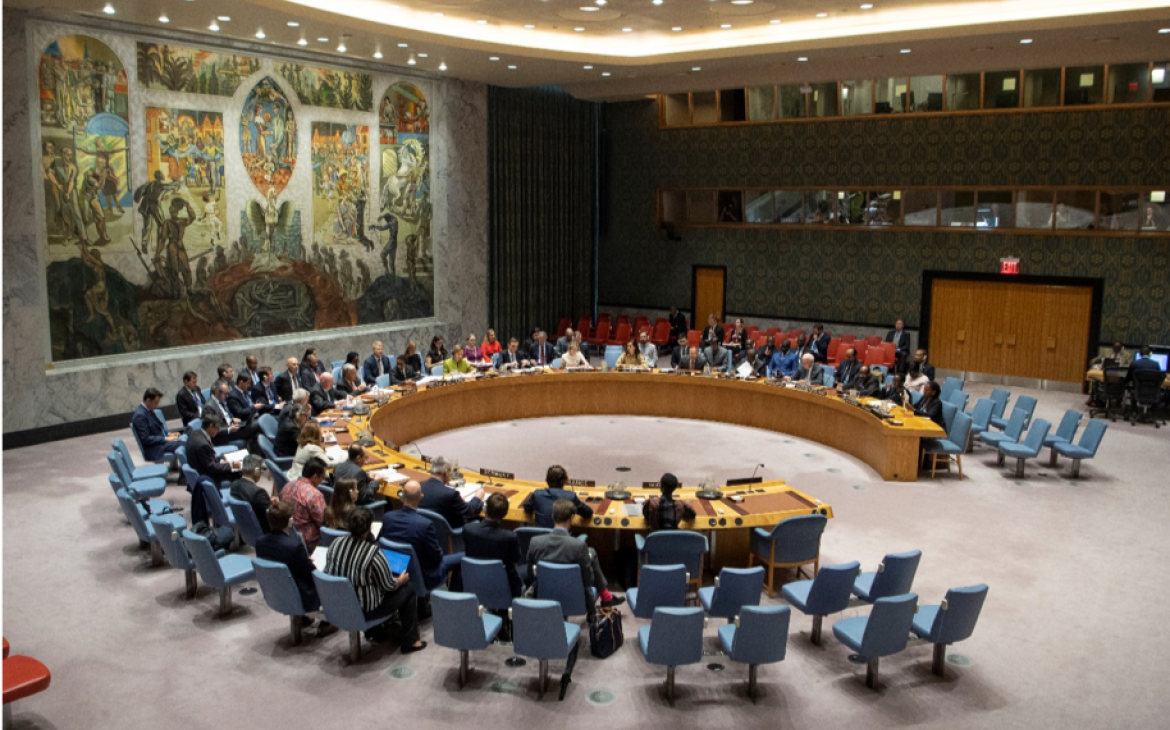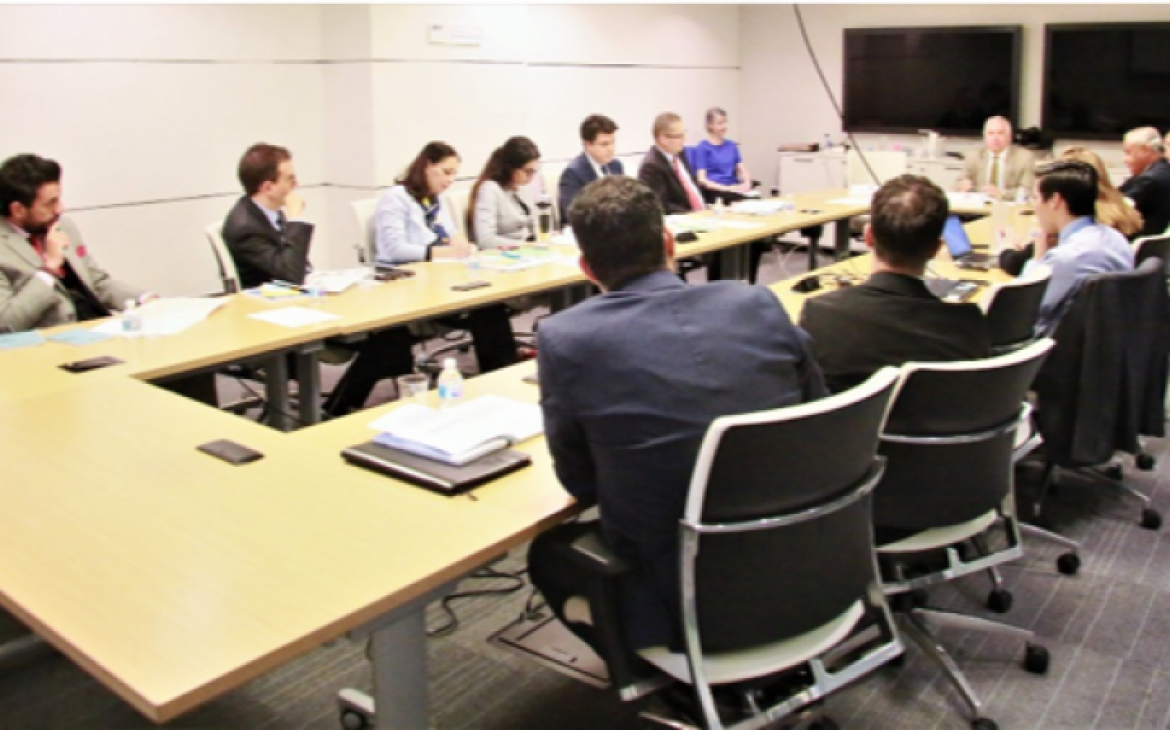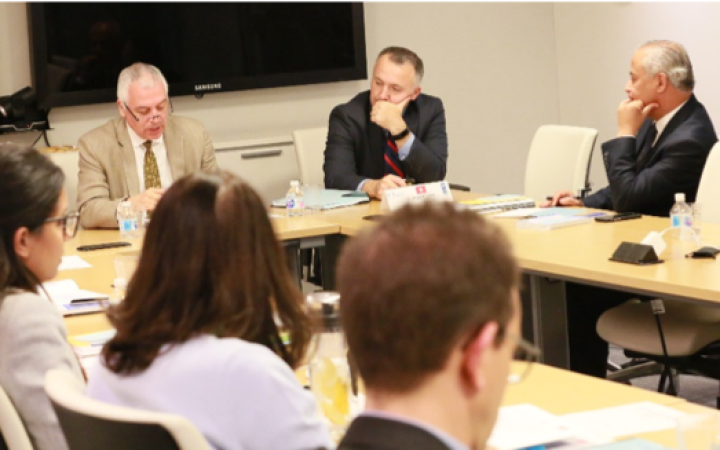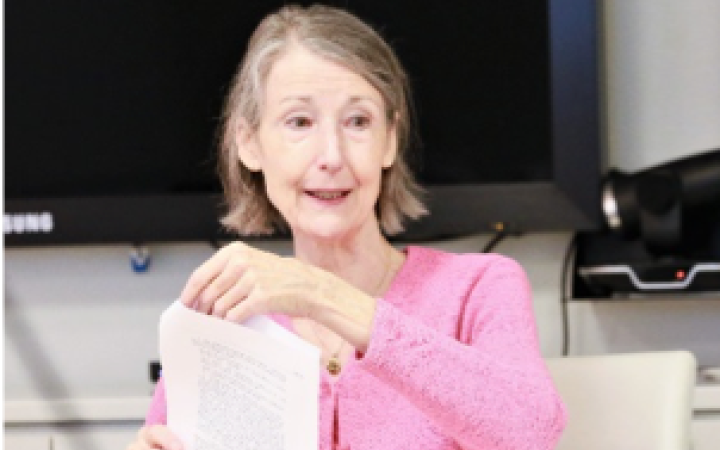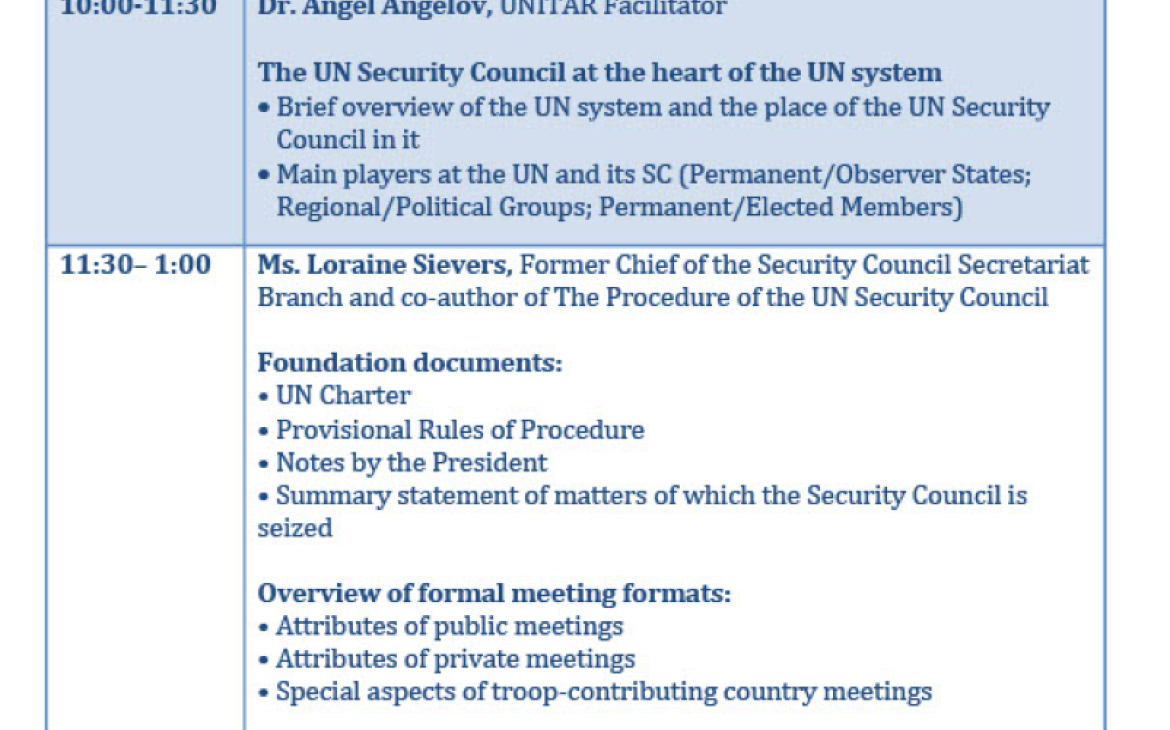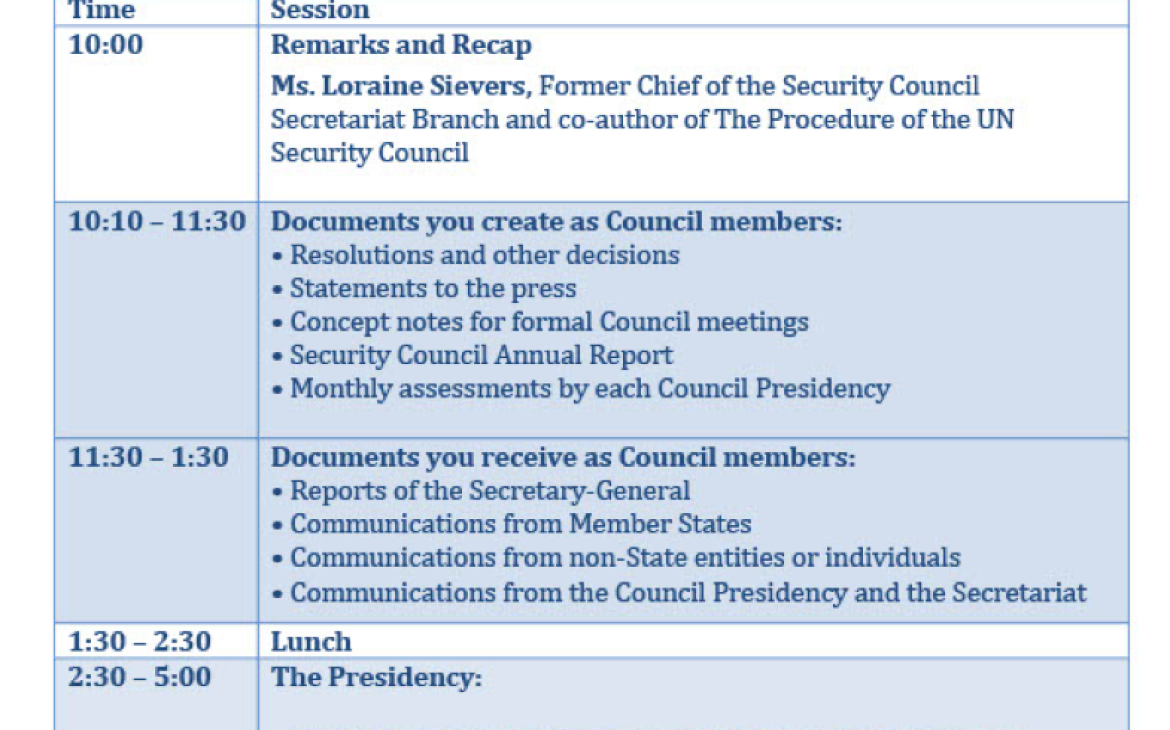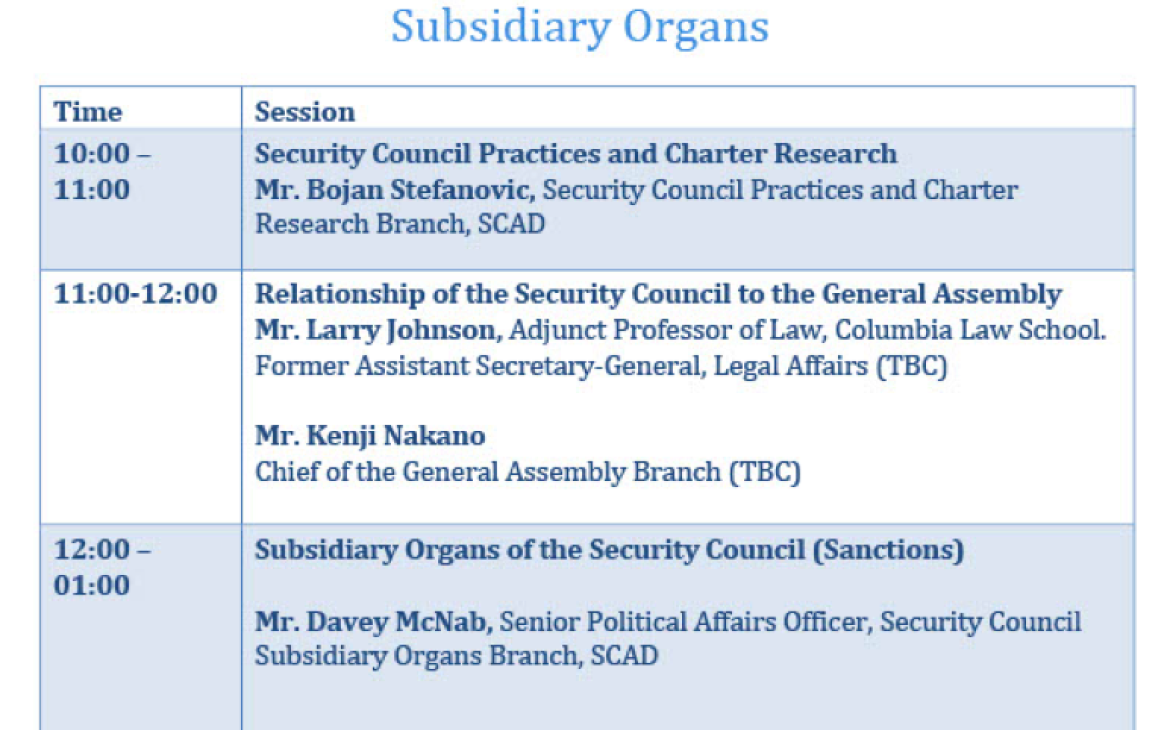23 October 2019, New York, USA – The United Nations Institute for Training and Research’s (UNITAR) New York Office kicked off the first of a series of workshops that will be held for the newly elected members of the Security Council for the 2020-20201 period: Tunisia, Niger, Vietnam, St. Vincent and the Grenadines and Estonia. The two and a half day training sessions will take place between 21 October and 15 December 2019, and cover the following topics; the role of the Security Council in the UN System, Foundational Documents, informal and formal meetings, documents Council members create and receive, the Presidency, Security Council practices, the Security Council relationship with the General Assembly, and the Subsidiary Organs of the Security Council. The five training courses will be led by the following instructors; Ms. Loraine Sievers, Former Chief of the Security Council Secretariat Branch and co-author of The Procedure of the UN Security Council; Mr. Larry D. Johnson, Former Assistant-Secretary-General for Legal Affairs; Mr. Bojan Stefanovic, Political Affairs Officer in the Security Council Practices and Charter Research Branch of the Security Council Affairs Division; Mr. Davey McNab, Senior Political Affairs Officer, Security Council Subsidiary Organs Branch, SCAD; and Dr. Angel Angelov, UNITAR staff as facilitator’s and other qualified panelists, as per request or need.
PERMANENT MISSION OF TUNISIA TO THE UNITED NATIONS
The first training session launched on October 21st for the Permanent Mission of Tunisia to the United Nations, sponsored by the United Nations Development Programme (UNDP). UNITAR’s Head of New York Office, Mr. Marco A. Suazo began the session by introducing the first panelists, Dr. Angel Angelov and Ms. Loraine Sievers, and welcoming the Tunisian diplomats to the session, and to the Security Council. Dr. Angelov gave a detailed presentation to the Tunisian diplomats on the main players of the United Nations. He explained the breakdown of the UN system, as well as the difference between regional and political groups in the UN. Dr. Angelov gave participants historical context for how the current UN System was formed, in particular regarding Tunisia’s neighboring Arab States. Dr. Angelov included important information for the Tunisian diplomats on Tunisia’s history in the Security Council, and the current responsibilities the country has as a new member. Dr. Angelov ended his lecture with a Q&A session, in which Tunisian diplomats asked questions regarding the founding of regional groups, the role of civil society organizations and the E10 in the Security Council.
Ms. Loraine Sievers led the second session, where she introduced the Tunisian diplomats to the resources available in her book, titled The Procedure of the UN Security Council, as well as how to best use the resources on her website. The primary focus of Ms. Sievers first session was the working methods, procedures and documentation relevant to the Security Council. The Tunisian delegates were provided a workbook containing important documents and advised on which documents are important to annotate and review thoroughly. Ms. Sievers gave information on the different committees that Tunisia is eligible to participate in and answered the diplomat’s questions regarding specific case studies and scenarios of interest. The session was interactive, and diplomats were able to have a discussion about the different documents, the importance of the verbiage in the documents, and various procedures in the Security Council.
By the seminar’s conclusion, the Tunisian diplomats had received a thorough introduction to the Council’s workings and mandate. By equipping the new Members with the expertise needed to fulfill their mandate, it is hoped that the sessions will contribute to a more effective and more representative Council.
The core programme structure will cover the following areas, and will be adjusted as requested by the newly elected members of the Security Council as per their needs.


